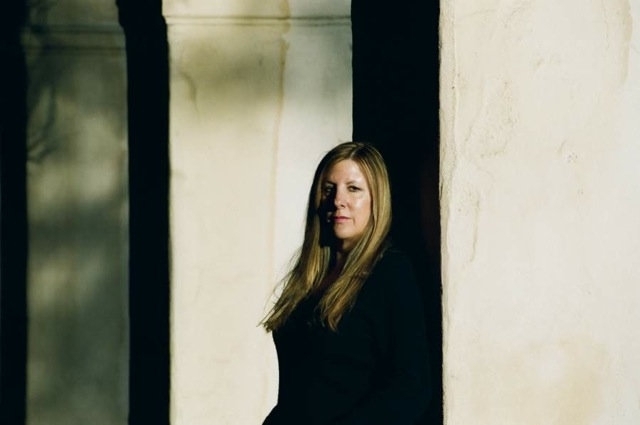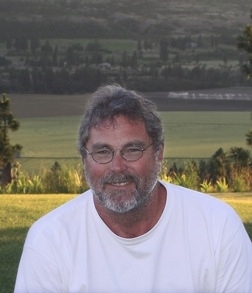‘Don’t fence me in’ defining theme for Westerns, classic and modern
As a kid growing up in suburban Ohio, Deanne Stillman loved it when her dad would read to her. One thing she most loved to hear was “Eldorado,” Edgar Allan Poe’s poem about a knight on horseback searching for the lost city of gold.
“I never really felt at home in Ohio,” Stillman says. “For some reason, I knew at an early age that it just wasn’t my spiritual home.
“But there’s this line, ‘Ride, boldly ride ...’ and when my father would read it, in my imagination I was out West and it was just this wide open territory and cactuses and red rock mesas.”
Stillman is an author whose work often explores the history, myths and attitudes of the American West. And she’s not the only American who has been enchanted at one time or another by literature-nourished visions of the West.
Most mainstream readers probably hear “Western” and think of nothing beyond the classics of Louis L’Amour and Zane Grey or lesser tales of six guns and 10-gallon hats and good guys who always win in the end.
But Westerns today make up a broad and diverse genre of literature. Next week, the Western in all its forms will be celebrated at the Western Writers of America’s 60th annual convention.
About 200 writers of Western fiction, nonfiction, poetry, songs and screenplays are expected at the event, which runs from Monday through June 29 at the Riviera.
Convention highlights will include a book signing from 4 to 7 p.m. June 28 at Barnes & Noble, 567 N. Stephanie St. in Henderson, that will feature more than 70 authors, and the annual Spur Awards program June 29 at which the year’s best Western books, stories, songs and screenplays will be recognized.
Also scheduled are panel discussions on topics such as black cowboys, gambling in the West, the Mormon West and Victorian virtue and vice in the West, as well as a session about authenticating history with Mark Hall-Patton, Clark County museums administrator and a resident expert on “Pawn Stars.”
Nonmembers can attend, and day and full-event registrations are available. For details, visit the Western Writers of America website (www.WesternWriters.org).
Western Writers of America was founded in 1953 when “you were just kind of coming off of the era of the big pulp writers (and) the big pulp magazines,” says Candy Moulton, its executive director.
It also was “the golden age of the TV Western,” Moulton notes and many of the group’s charter members wrote for Western TV shows, movies and magazines .
“But we have evolved, as everything has to evolve,” she says. “So, today, we have members who write in almost every way you can about the American West.”
Westerns have evolved since then, too. Today, Moulton says, the genre encompasses writers who take diverse approaches to the Western, offering readers everything from traditional Westerns to subgenres (Western romances and Western mysteries, for instance) and “stories that fit the elements of traditional Westerns into more contemporary times.
“So it’s not just the traditional Western story that’s set in the 1860-to-1890 era, and (has) good guys and bad guys and the good guys usually win,” Moulton says.
What makes a Western a Western? First, of course, is its setting in the American West.
“The location, the land, the place itself, the setting is an element and a character in a good Western story,” Moulton says. “The setting — the land, the place — certainly is what defines a Western for me and, I think, for most of our writers.”
Stillman’s books include “Mustang: The Saga of the Wild Horse in the American West” and “Desert Reckoning: A Town Sheriff, a Mojave Hermit and the Biggest Manhunt in Modern California History.”
“I’m writing Westerns,” she says, “but it’s also narrative nonfiction.”
Westerns deal with “enduring American themes,” Stillman says, and chief among those themes is a high regard for freedom, individualism and open space.
“That ‘don’t fence me in’ consciousness, that is who we are,” Stillman says. “That is a river that runs through all my books, and it comes to a head in a big way in ‘Desert Reckoning.’ Here’s an outlaw who lives in the shadowlands of the 21st century and has a fatal encounter with a sheriff, and all these values come into play: ‘Don’t tread on me’ versus ‘Does your car have a smog check?’ ”
Stillman says one Los Angeles police officer she met while researching the book “entered law enforcement because of (reading) Louis L’Amour. That’s how all this stuff influences our life in a lot of ways.”
Bruce Holbert, who works primarily in fiction, says the Old West celebrated in stories and movies actually encompassed a span of “maybe 20 years.”
But “it’s the mythology that has come up around it that has resonance,” he adds.
It’s a mythology Americans still respond to even if they aren’t aware of it, says Holbert, whose novel, “Lonesome Animals,” is about a tough-guy Western lawman who finds himself in a society “that has less and less room for him” as he hunts for a serial killer.
Although the story is set in the 1930s, “it’s really informed by the mythology of the West,” Holbert says, with a character “shaped by the forces of the Western myth. And one of the things I’m doing is questioning that mythology.”
Stillman says the passage of time hasn’t dimmed the appeal of the Western. The genre remains “completely relevant,” she says. “Scratch any American and, under the surface, it doesn’t take long to get to ‘don’t fence me in,’ whether it’s somebody living in an 18-story apartment building in Manhattan or a hermit living in a trailer in the desert.”
Moulton agrees. Americans “like to go back to their roots,” she says, “and even if their roots never were, say, on a ranch or out in the West, they still find escapism in that and they still want that.
“I don’t see us going away. I see us growing, building a stronger base of people who know about us and really want our stories. That is what we’re giving them: different stories to tell.”
DJ Giles of Las Vegas has been a fan of Westerns since he was a kid. He grew up reading Louis L’Amour and Zane Grey and watching “Bonanza” and other TV Westerns, and even today leans more toward traditional Westerns.
The appeal: reading about a less complicated time “where there’s good and bad and right and wrong,” he says.
People tend to “make the world more complicated than it actually is, and I think that’s one of the main draws of the Western and that genre as a whole,” he says.
“I guess certain modern-day people have tried to dismiss the Western and dismiss the whole cowboy thing in general. But I think that’s never going to go away. That’s who and what we are.”
Although he’s partial to classical Westerns, Giles is open to checking out variations on a Western theme.
Except, that is, for one.
“I saw a book a while back. It’s with, like, zombies in the Old West,” Giles says. “I’m so sick of the zombie thing I can’t even see straight.”
Contact reporter John Przybys at jprzybys@reviewjournal. com .
PREVIEW
What: The Western Writers of America 60th anniversary convention
When: June 24 through 29
Where: Riviera Casino & Hotel, 2901 Las Vegas Blvd. South
Tickets: Onsite registration for non-members is $75 (day rate) or $170 (entire convention), (WesternWriters.org)
















